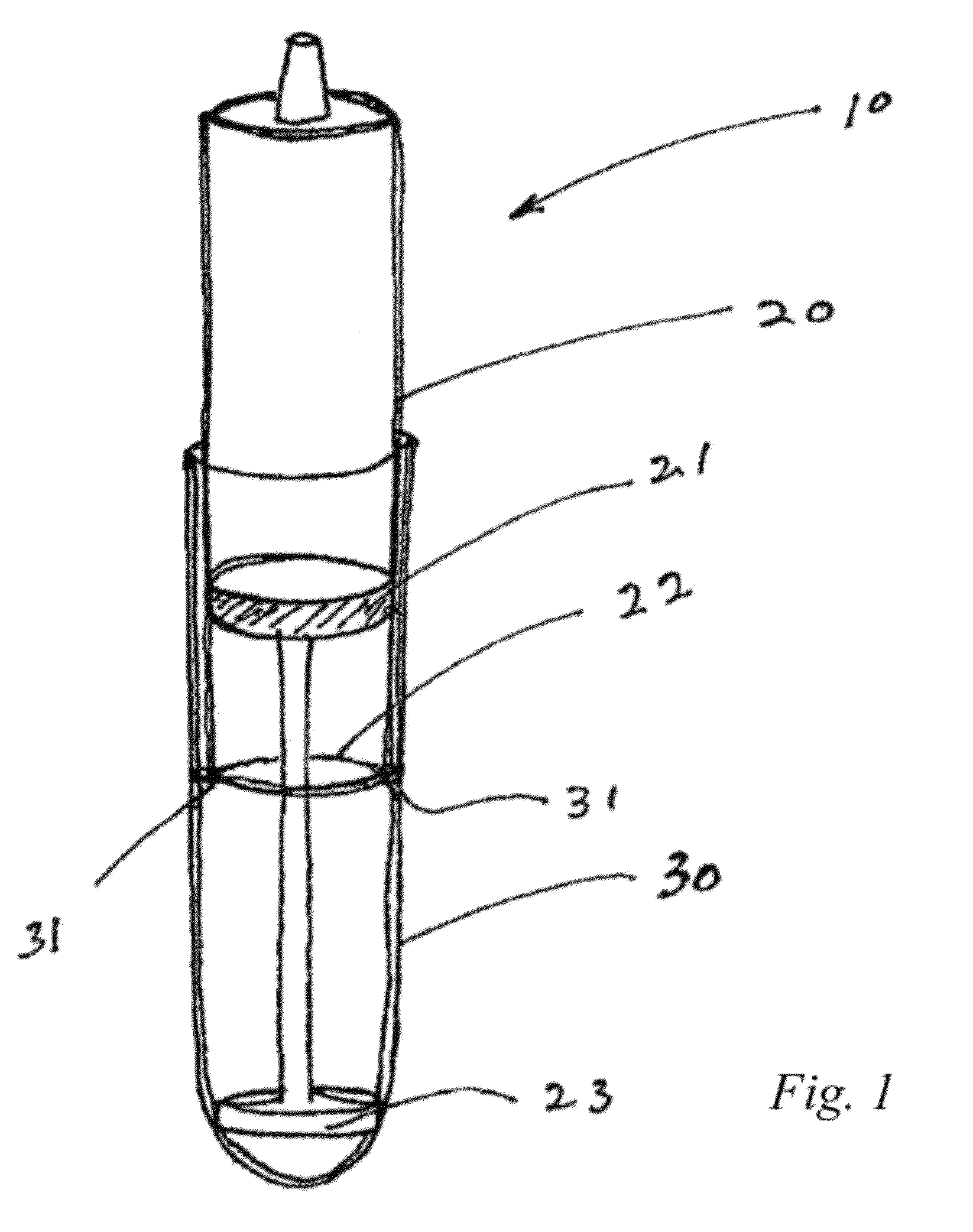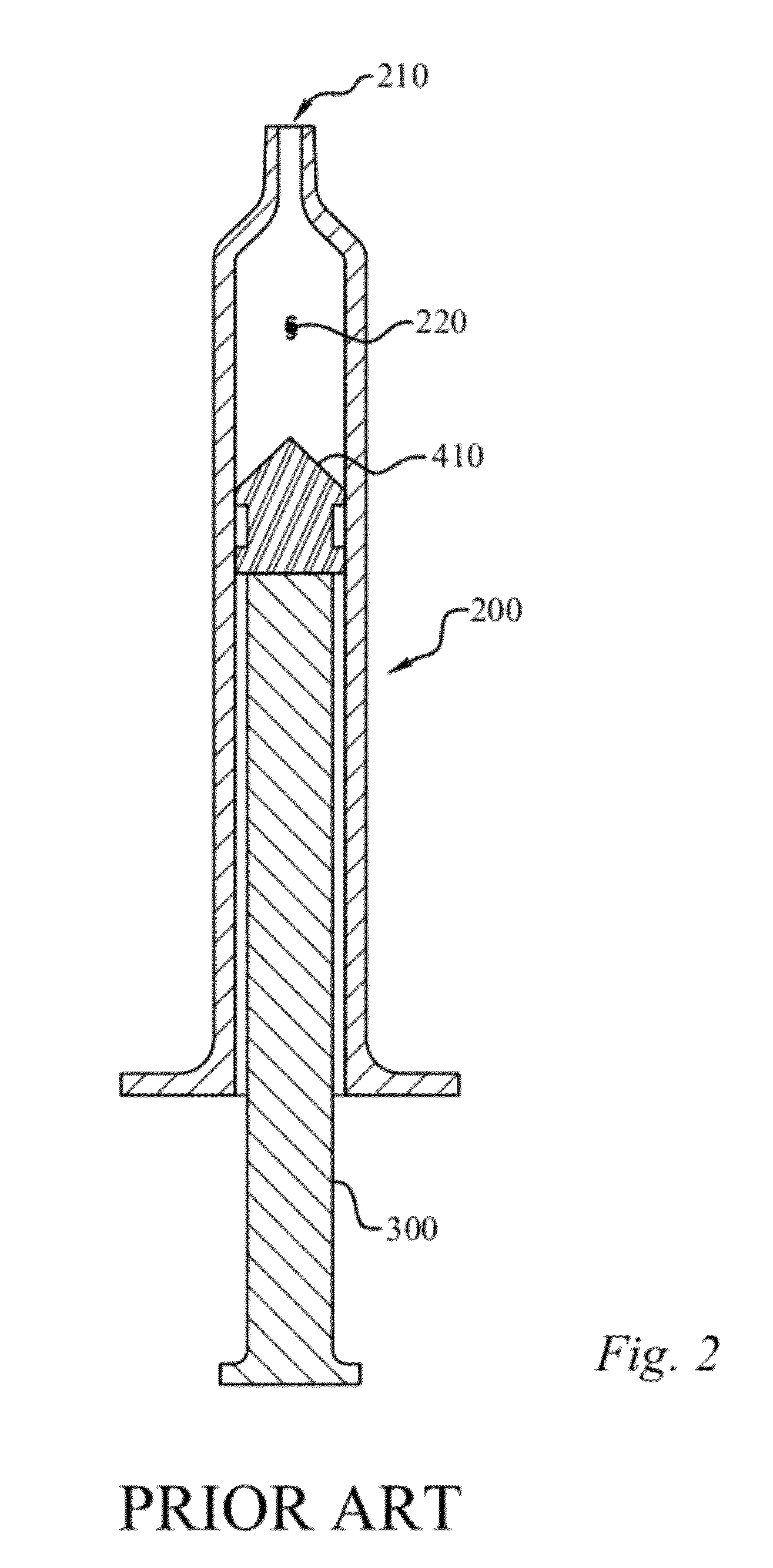Use of autologous sediment from fluid aspirates as vehicles for drug delivery
a technology of fluid aspirates and autologous sediments, which is applied in the direction of transportation and packaging, laboratory glassware, instruments, etc., can solve the problems of increasing the likelihood of infection, not allowing for the maintenance of effective dosage levels of active ingredients, and cytokines such as il-2 have a danger of systemic toxicity, so as to minimize any inflammatory response
- Summary
- Abstract
- Description
- Claims
- Application Information
AI Technical Summary
Benefits of technology
Problems solved by technology
Method used
Image
Examples
examples
[0066]A synovial joint fluid aspirate is to be collected from a knee joint of a patient. The fluid aspirate is then centrifuged to provide a supernatant and a sedimented material. The supernatant is then be removed from the sedimented material and one or more factors such as cytokines and bone morphogenetic proteins (BMPs) are then provided to the supernatant so as to provide a therapeutic mixture. Prior to injecting the mixture into the patient to deliver these factors, the mixture can be tested on alternate knees in a laboratory animal to determine whether the prepared therapeutic mixture is sufficiently clean. Treated versus untreated knees of the laboratory animal can be then compared. If it is determined that the mixture is sufficiently clean, the therapeutic mixture can be then be injected into the knee of the patient which requires treatment.
PUM
| Property | Measurement | Unit |
|---|---|---|
| pore size | aaaaa | aaaaa |
| pore size | aaaaa | aaaaa |
| pore size | aaaaa | aaaaa |
Abstract
Description
Claims
Application Information
 Login to View More
Login to View More - R&D
- Intellectual Property
- Life Sciences
- Materials
- Tech Scout
- Unparalleled Data Quality
- Higher Quality Content
- 60% Fewer Hallucinations
Browse by: Latest US Patents, China's latest patents, Technical Efficacy Thesaurus, Application Domain, Technology Topic, Popular Technical Reports.
© 2025 PatSnap. All rights reserved.Legal|Privacy policy|Modern Slavery Act Transparency Statement|Sitemap|About US| Contact US: help@patsnap.com



